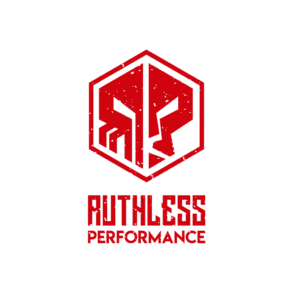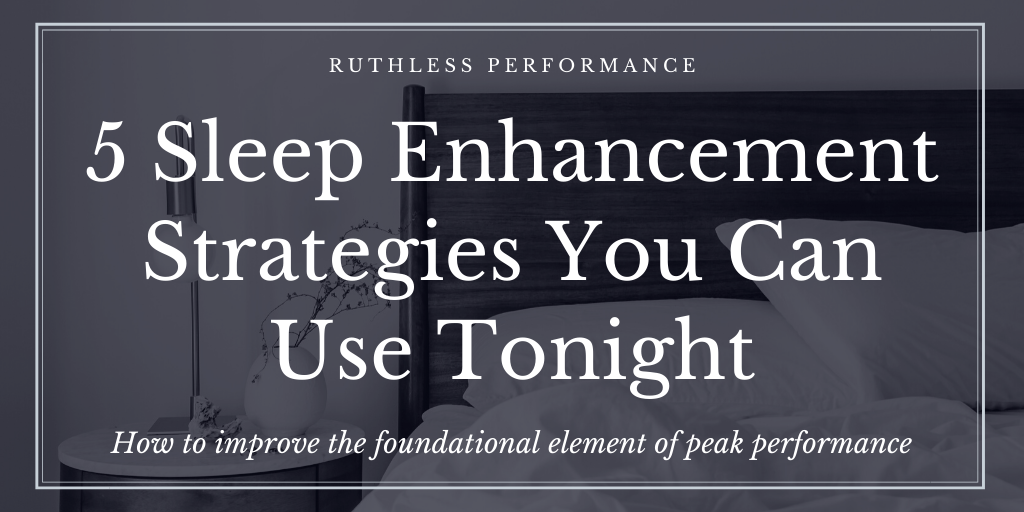By now the value of sleep should be completely self-evident. Sleep modulates the production of hormones that are valuable to peak athletic and cognitive function like hGH (Growth Hormone), cortisol, and testosterone. Additionally, adequate sleep helps improve insulin sensitivity, burn fat, increase working IQ, and generally improves a variety of other variables that make you a healthier, smarter, and more athletic human.
But I’m going to stop trying to instill the value of sleep here, as sleep is one of the few factors which is free and readily available in high performance that has yet to be tarnished or misrepresented by the various commercial interests in health and fitness.
Since you’re already on-board with the value that high quality sleep can provide, let’s show you how to achieve it…
1 – Lower Your Room Temperature
In the broadest sense possible, quality sleep is largely about thermoregulation–or the body’s ability to regulate temperature. Though we’re taught that the body is constantly seeking homeostasis, there is actually a temperature range, rather than a set point, which human physiology is optimized for.
This temperature range should stay the same day-in and day-out. Similarly, this temperature range should match up to–and be a contributing factor of–the circadian rhythm. Body temperature should hit its lowest point near the deepest phases of sleep, begin to rise with the sun, and hit its highest somewhere around mid-afternoon or early evening. In this regard, the circadian rhythm and body temperature should align with the outside temperatures that we’ve been exposed to in our evolutionary past.
These temperatures are also indicative of the state of the central nervous system (CNS). As your temperature peaks, the body is in its most alert, sympathetic-dominant state. This simply means that the ‘fight/flight’ segment of the CNS is primed alongside of higher temperatures, which is why peak strength output is usually around this same afternoon/early evening time.
This higher temperature is great for performing, but is NOT great for recovering. By dropping your room temperature you can have more control over your central nervous system, bringing your alertness level down (engaging the parasympathetic nervous system), and thereby enhancing sleep quality.
2 – Cool Off by Warming Up
This unusual strategy is just another backdoor way to regulate your circadian rhythm through temperature manipulation. Eating involves something known as the Thermic Effect of Food (TEF). TEF refers to the spike in your body temperature as your gut begins to undergo the process of food digestion. This is common to all foods, though the extent to which TEF changes your temperature will vary widely.
On one hand you want the biggest meal of the day to be in the evening; this ensures greater cognitive function and clarity throughout the day. But on the other hand, eating too close to bed can increase your body temperature too much and adversely alter sleep quality. By stopping food consumption around 2-hours before bed you can minimize the burden TEF places on your sleep to a great extent.
By showering after dinner, your body is better suited to thermoregulate. Though counterintuitive, a hot shower can help facilitate a supercompensation whereby the body is better apt to cooling off and matching the normal temperature fluxuations associated with the circadian rhythm.
Cool/cold showers may actually have the exact opposite effect. Cold water can trigger a sympathetic / adrenal response, making you more alert than you might like to be when heading to bed. The closest thing to a cold shower that I would advocate for this close to bed is a contrast shower. Contrast showers involve using an alternating supply of hot / cold water. You want to make the water progressively hotter and colder as you go, with lengthening times under each. Contrast showers have a host of benefits too lengthy for the scope of this article, but if you’re interested in trying these, here’s a template you can start with. Don’t get caught up on the exact figures, but directionally it may look something like this:
- 20 Seconds Hot Water
- 20 Seconds Cold Water
- 40 Seconds Hotter Water
- 40 Seconds Colder Water
- 60 Seconds Even Hotter Water
- 60 Seconds Even Colder Water
- 90 Seconds Hottest Water (always end on hot if using this before sleep)
3 – Drink an Apple Cider Vinegar Cocktail
I initially learned about this in the book Tools of Titans by Tim Ferriss. The recipe he suggested calls for a cup of hot water, two tablespoons of Apple Cider Vinegar, and 1 tablespoon of honey. Since I try to keep calories to an absolute minimum within two hours of sleep, I’ve cut out the honey completely.

There’s a two-fold benefit here. The heat of the drink helps bring the blood flow to the gut leading to a more restful CNS state, while the acidity of the Apple Cider Vinegar actually facilitates better digestion. The science of stomach acidity is something I’ve spent more and more time learning about over the past few months because of its broad impact on health. This also helps with immunity and a host of other factors which have a direct influence on peak performance.
If you’re local to East-Central Pennsylvania, you can visit our friends at Health Habits Natural Market in Orwigsburg, PA to stock up. We like the Bragg’s brand Raw, Unfiltered Apple Cider Vinegar the most.
4 – Supplement with CBD

My first few uses of CBD had as significant an impact on sleep quality as the Apple Cider Vinegar solution did. There is much (unwarranted) controversy surrounding CBD usage. Largely due to its relationship with its chemical cousin THC. This relationship makes further study on CBD very tough and has kept us from getting a very clear understanding about the mechanism through which it works. Because of this, we’ve only in the past few decades even discovered that an endocannabinoid system exists in the body.
CBD very definitely combats inflammation, which may be a cause of its value in enhancing sleep quality, but its effects on the body through the endocannabinoid system are completely encompassing. A short list of functions related to this system include memory, immune health, pain sensation, executive function, and much more.
I recommend around 20 mg of CBD right before bed. Currently I’m using Quicksilver Scientific Nanoemulsified Broad Spectrum Hemp Extract CBD (again available locally at Healthy Habits), but since research is limited, so is my understanding of the various types, their receptivity, bioavailability, etc..
5 – Regularly Perform Intense Bouts of Cardio
As someone who considers myself primarily a strength athlete, my desire to do any type of conditioning is severely limited. Though not a surprise, during my cross-country cycle I noticed how well I slept, particularly on the nights following the most rigorous days. This experience caused me to look into this particular cause-and-effect relationship in greater detail. Research shows that a positive correlation does exist between sleep and vigorous exercise (1). I hypothesize that this is brought about by vast improvements to heart rate variability (HRV) that occurs during cardiovascular training when paired with adequate rest.
All Ruthless Performance athletes have some type of conditioning work in their programming, this is just another reason that it’s such a powerful tool. But if you’re not yet at the level of being able to regularly perform intense bouts of cardio, long-duration steady state cardio may be a good place to start. Consider walking, cycling, or swimming for at least 30 minutes daily. More advanced athletes can use sled pushes, hill sprints, rowing intervals, etc.. The proximity of this exercise to sleep doesn’t seem to matter all that much. For the purpose of sleep quality, we’re simply looking to elicit a quantitative change in Heart Beats Per Minute.
BONUS – Avoid Sunday Night Insomnia
Fortunately, or unfortunately, regularity is highly correlated to sleep quality. The value of this tends to get lost in the noise of busy and erratic schedules. One common cause of poor sleep quality is the Sunday Night Insomnia phenomena. This is where a late Saturday night leads to a late Sunday morning wake-up, shifting back the circadian rhythm and interfering with sleep quality heading into the start of the week. You can read more in this old piece I did for Stack Magazine.
Works Cited
(1) Dolezal, Brett A et al. “Interrelationship between Sleep and Exercise: A Systematic Review.” Advances in preventive medicine vol. 2017 (2017): 1364387. doi:10.1155/2017/1364387


Pingback: Ruthless Performance in the Media – Ruthless Performance